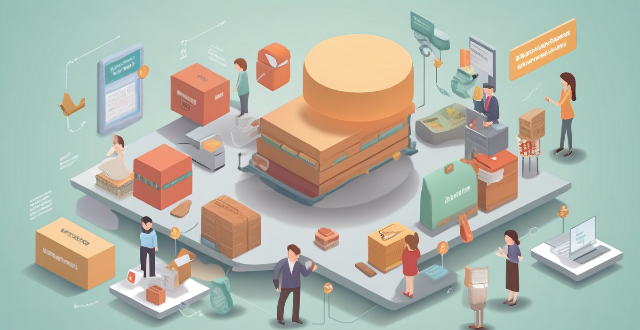To find reliable sources for buying and selling used goods, it's essential to conduct thorough research, choose trusted online marketplaces, verify seller information, ask for detailed descriptions and photos, use payment methods that offer protection, be wary of scams, consider professional resellers, and inspect items before purchasing. By following these steps, buyers can minimize risks associated with such transactions and ensure they get the best value for their money.

How to Find Reliable Sources for Buying and Selling Used Goods
1. Conduct Thorough Research
- Read Reviews and Testimonials: Look for feedback from previous customers on websites, social media platforms, or forums. This can give you an idea of the seller's reputation and reliability.
- Check the Seller's History: If possible, find out how long the seller has been in business and what their track record is like. A longer history and positive reviews are usually good signs.
2. Choose Trusted Online Marketplaces
- eBay: A well-established platform with a rating system for both buyers and sellers.
- Craiglist: A popular classifieds website where you can find local sellers, but be cautious as it lacks a formal rating system.
- Facebook Marketplace: Allows you to see profiles of sellers and communicate directly within the platform.
- OfferUp and LetGo: Mobile apps that facilitate local buying and selling with user ratings and profile verification options.
3. Verify Seller Information
- Contact Information: Ensure the seller provides valid contact details such as a working phone number or email address.
- Physical Address: For local transactions, prefer sellers who are willing to meet at a public place or provide a verifiable address.
4. Ask for Detailed Descriptions and Photos
- Request Clear Photos: Ask the seller to provide multiple angles of the item, including any damages or wear and tear.
- Inquire About Condition: Get detailed information about the item's condition, usage, and any defects it may have.
5. Use Payment Methods That Offer Protection
- PayPal: Offers buyer protection policies for eligible transactions.
- Credit Cards: Often come with fraud protection, which can help if something goes wrong.
- Escrow Services: Third-party services that hold funds until the buyer confirms receipt of the item.
6. Be Wary of Scams
- Too Good to Be True: Prices that are significantly lower than market value should raise red flags.
- Pressure to Act Fast: Be cautious of sellers who rush you into making a decision without allowing time for proper verification.
- Requests for Personal Information: Never share sensitive information like your Social Security number or bank account details unless absolutely necessary through a secure, verified transaction process.
7. Consider Professional Resellers
- Pawn Shops: These businesses specialize in buying and selling used goods and often have a selection of items to choose from.
- Consignment Stores: They sell items on behalf of individuals and typically curate their merchandise, ensuring certain quality standards are met.
- Secondhand Stores: Non-profit organizations like Goodwill or Salvation Army offer a wide range of pre-owned products.
8. Inspect Before Purchasing
- Test Functionality: If possible, test electronics or appliances to ensure they work properly before finalizing the purchase.
- Examine Physical Condition: Carefully inspect the item for any damage, wear, or signs of extensive use.
By following these steps, you can increase your chances of finding reliable sources for buying and selling used goods while minimizing risks associated with such transactions.